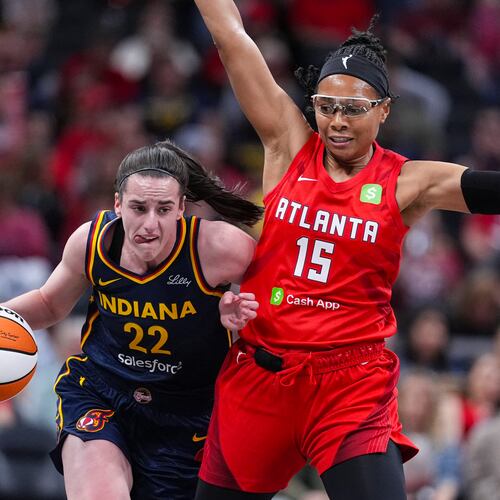The atmosphere at a news conference during the baseball playoffs is different from most in the regular season. More cameras are present, and more reporters — some from other parts of the country who have perhaps not seen the teams play regularly — pack the room. Because clubhouse access is limited, these gatherings are the way teams are presented to a national audience.
In that setting, a reporter recently asked Terry Collins how he had seemed to manage the New York Mets with so much urgency this postseason.
“I’m old; sense of urgency is right now,” Collins said, and everyone in the room burst into laughter. “I either get this done right now, or I don’t have a lot of shots. So it’s pretty big for me.”
Collins, 66, the oldest manager in baseball, has made his news conferences must-see TV this postseason, full of humor, wit and stories from his winding career. After more than 40 years in professional baseball, after previous stops managing the Houston Astros and the Anaheim Angels, after finally having guided a team to the playoffs in his 11th year as a major league manager, Collins has appeared loose and easygoing, enjoying the ride.
The Mets, in turn, have played with the same attitude. Before Game 5 of their National League division series, Collins told a news conference, “This, to me, is gravy.” The Mets proceeded to beat the Los Angeles Dodgers and Zack Greinke, perhaps the best pitcher in the majors this season, and advanced to the league championship series.
Unsurprisingly, Collins has stories about Cubs manager Joe Maddon, who used to work under Collins in Anaheim and, with Collins, may be among the most quotable managers in the game. On Saturday, Collins said, “Joe was never a very good hitter.”
Given almost any topic, Collins can offer a nuanced perspective, an anecdote from long ago or a joke that draws laughter. He is known to invoke old friends like Sandy Koufax and Barry Bonds in one answer and to deliver a timely punch line the next.
Consider a few of the one-liners Collins has offered in recent days.
— On Clayton Kershaw, whom the Dodgers drafted while Collins was their minor league director: “I gave him a lot of money at one time.”
— On the importance of Kevin Long, the Mets’ hitting coach: “He’s smaller than me — the key part of the signing.”
— On his exuberant celebration after the Mets beat the Dodgers: “I’ll try to behave better next time.”
Even Collins’ demeanor on the dais is comical. He fidgets with the microphone while taking questions. He waves his hands and raises his voice to make an emphatic point. You can tell by watching his facial expression what he thinks of a question.
Mets fans and reporters who have followed Collins have seen this side of him: how he needles Jay Horwitz, the Mets’ longtime public relations executive; how he is sometimes more honest than it seems his bosses prefer; how he peppers his answers with curse words, or the nicer equivalent.
“Cripes!” Collins often exclaims.
Collins was not always this relaxed, though. In his first two managerial stops, he garnered a reputation as too fiery, too uptight.
As a player, he was a career minor leaguer, an undersized middle infielder who relied on heart to keep his career going. As a manager, he expected his players to approach the game the same way.
But in Anaheim, his players staged a mutiny, and Collins spent the next decade working various jobs around baseball, even briefly managing a Japanese team, until the Mets named him manager for the 2011 season.
Collins was 61 then.
“Sometimes you wait a long time,” said former major league manager Jim Leyland, Collins’ longtime friend and mentor. “He’s waited. He’s paid his dues.”
Time has mellowed Collins, he acknowledges. He is more open to the sabermetric movement. His players, most of them more than 30 years his junior, laud him for his communication skills and his open-door policy. He leaves the clubhouse policing mostly to the veterans, trusting them to keep the atmosphere light and hold everyone accountable.
That gentle touch helped Collins guide the Mets through a strange season. General manager Sandy Alderson described Collins’ job as twofold. In the first half he had to get enough out of a young group of call-ups to keep the Mets competitive, and after the trading deadline he had to find the right balance by incorporating all the new arrivals.
Collins led the Mets to their first playoff appearance in nine years. When they clinched, he thought of his father, Loren Collins, who died in February. Collins reflected on his career over dinner that night and said he thought, “Wow, it was all worth it.”
Now Collins is expected to receive votes for National League manager of the year.
“He’s still the same baseball person he was 20 years ago,” said Leyland, who gave Collins his first big league coaching job, with the Pittsburgh Pirates. “But he has made the necessary adjustments to go with the flow.”
Part of that adjustment has been conducting what seems to be an endless number of interviews, as the manager of a baseball team in the country’s largest market. Collins does interviews before the game, during the game, after the game, usually with the same casual attitude. During a recent session with New York reporters, though, Collins complained about having to do television interviews during playoff games.
A reporter said that declining to do the interview might result in a fine.
“So what? I’m trying to win a game,” Collins said.
“If we win the World Series,” he added, pausing to set up the punch line, “that playoff share will take care of any fine.”
About the Author
Keep Reading
The Latest
Featured


